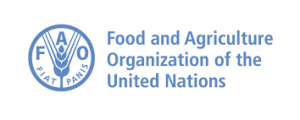By Onome Amuge
The Food and Agriculture Organisation (FAO)’s regional office for Africa, in partnership with the Fishery Committee for the Eastern Central Atlantic (CECAF), has intensified support for the Fishery Committee for the West Central Gulf of Guinea (FCWC) by providing laptops and technical expertise for fisheries data analysis.
During the event held at the FCWC secretariat in Tema, Ghana, laptops were provided to the fishery committee to support the capture, analysis and reporting on fisheries data across the West African countries including Benin, Côte d’Ivoire, Ghana, Liberia, Nigeria and Togo.
Funded by FAO through a Technical Cooperation Programme (TCP), the initiative is part of FAO’s broader work with CECAF to support regional institutions to better transform fisheries recommendations into policy action and to improve artisanal fisheries’ data frameworks across the CECAF region.
According to statistics, the West African region loses an estimated $300 million a year to illegal fishing, one of the worrying issues the project is aimed at curbing while promoting the fishing sector in the regions to exploit its economic gains.
Commenting on the development, Ndiaga Gueye, FAO senior fishery and aquaculture officer and secretary of CECAF, said the provision of the devices will support beneficiary countries to capture and analyse catch data on vessels, landings sites and related fishing activities which will strengthen the understanding of capture fisheries in the region.
Gueye added that with this knowledge, countries can better monitor illegal fishing and the health of key fish stocks in their various communities.
On his part, Séraphin Dedi, the general secretary of the FCWC appreciated the laptops and acknowledged the ongoing partnership between FAO, CECAF and the FCWC.
He also highlighted the importance of fisheries in the various regions which he noted to be vital to food security and national economies in many African coastal countries.
Seafood is regarded by experts as the main source of protein for around a quarter of the West African population and the fishing sector has an employment capacity of over seven million people in the region.
The Fisheries Committee for the West Central Gulf of Guinea (FCWC) was established in 2007 and its headquarter is located in Tema, Ghana. The organisation was created with the objective of facilitating cooperation in fisheries management between the member countries of Benin, Cote d’Ivoire, Ghana, Liberia, Nigeria and Togo. The six countries have several shared fish stocks and identified a need for cooperation and shared management of these resources.









